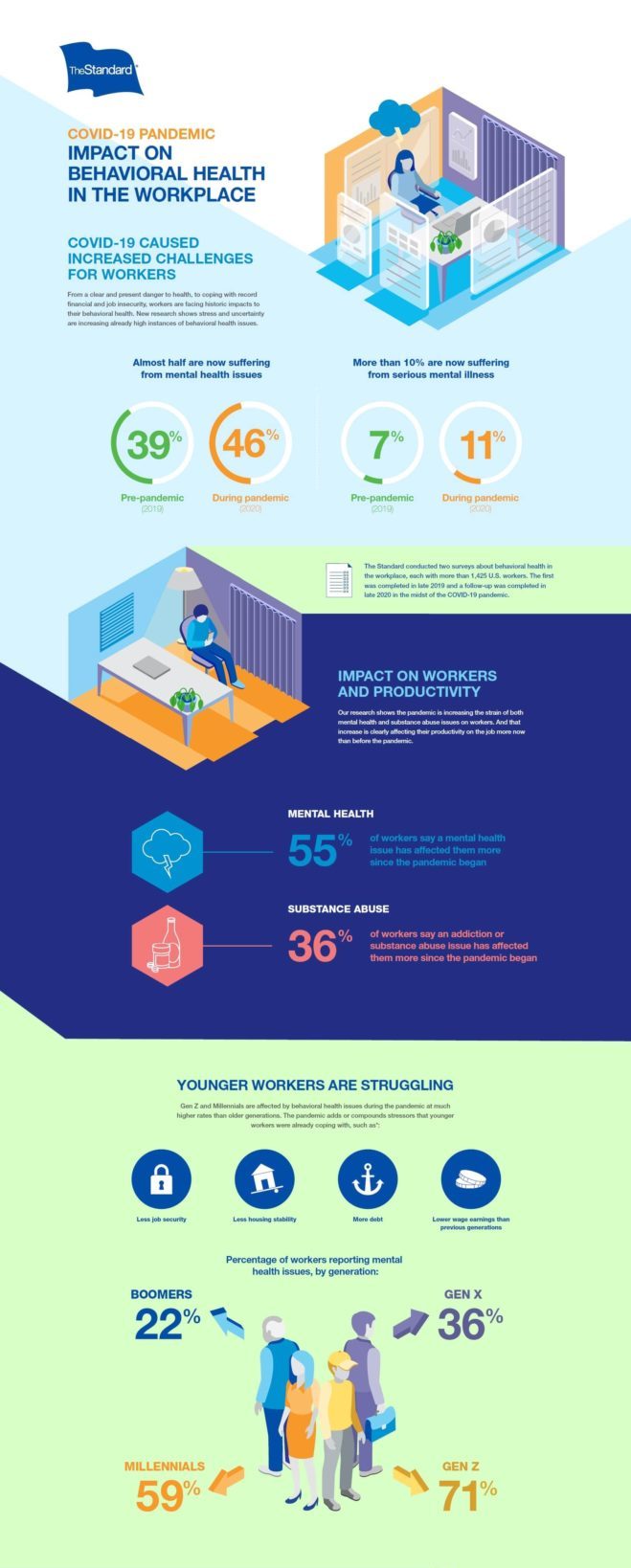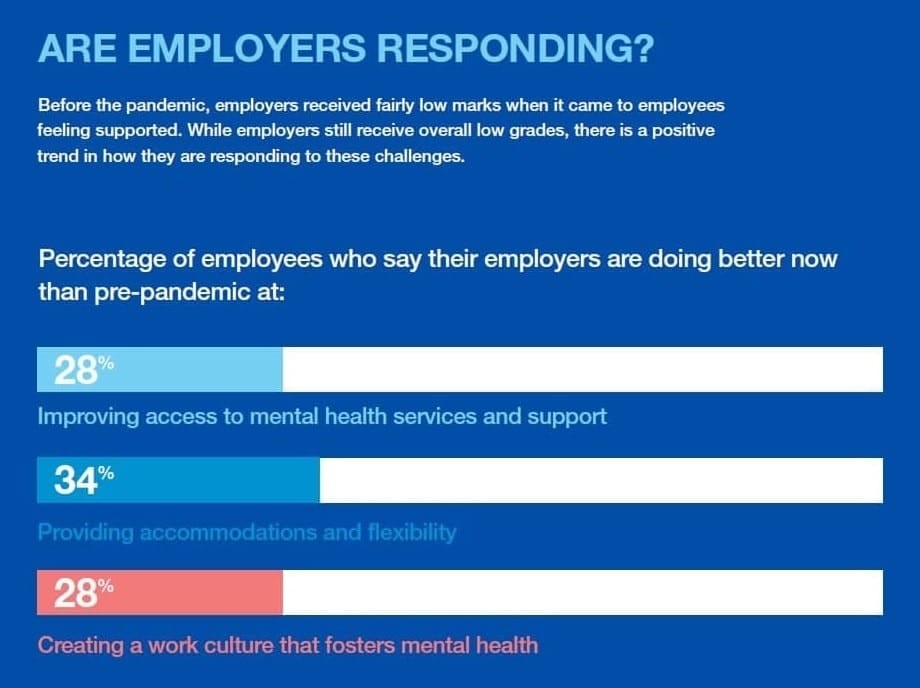Mental health challenges experienced in the workplace are often, by default, suppressed. But patches of sunlight are shining through the cloud cover. Research suggests a supportive culture can elicit both higher employee engagement and greater productivity.
The Olympics in Tokyo wrapped up a few weeks ago. What did you take away from the two weeks of competition? Was it seeing the number of medals won by your country? Was it seeing your favorite athlete shine in the moment? Was it seeing the Olympic spirit on full display? Or was it something else?
For me, it was seeing athletes from different countries and sports sharing their experiences with their mental health in preparing for these Olympics again and again, through all the starts and stops, rehabbing back from an injury or preparing to transition back to “normal” life after the limelight fades – then, seeing those shared experiences spread outward into discussions between commentators, journalists and the world.
Who would have imagined seeing this back in 2018 at the Pyeongchang Olympics or at the Rio Olympics in 2016? There were some rumblings in the background and from one of the greatest of all times, Michael Phelps. Michael chronicles his struggles in HBO’s Sports documentary, The Weight of Gold.
“You Just Don’t Talk About It.”
One of my biggest takeaways from the documentary was that athletes don’t talk about their weaknesses. That struck a nerve with me. Why? Whether you are an Olympic athlete, a CEO of Fortune 500 company, a mid-manager at a local paper company, a retail clerk or a job seeker, we all had it engrained into our psyche: “You just don’t talk about it.” You put your head down and did your job, because if you shared that you were struggling, it might be seen as a sign of weakness.
No one wants to look weak and miss out on a promotion. So we keep slogging on and on until we hit the breaking point and burn out – or worse. How many of you have ever felt cynical or critical at your job; lacked the energy to be consistently productive; lacked satisfaction from your achievements; used food, alcohol or drugs to feel better; or had a change in your sleeping habits? These are all symptoms of burnout and, if left unchecked, can result in serious complications.
According to a study by the Portland-based insurance company The Standard, almost half of U.S. workers (46 percent) are dealing with mental health issues since the start of the pandemic – up from 39 percent pre-pandemic. Their research also showed a correlation between an increase in mental health issues and an increase in unproductivity at work. A study by the World Economic Forum even before the COVID-19 pandemic found the global cost of mental health issues, including costs related to lost productivity, was about $2.5 trillion in 2010. The authors estimate this sum will grow to $6 trillion by 2030. This goes to show there’s a link between mental health and workplace productivity. You need your mental health to be at its best to do your job, but what can organizations and leaders do to help their employees? They can make it okay to talk about mental health out in the open. They can listen to their employees when they say things are not okay. They can provide resources. They can share their own experiences. They can give support and grace to those who are struggling. It appears the needle is moving in the right direction, according to The Standard survey:
This goes to show there’s a link between mental health and workplace productivity. You need your mental health to be at its best to do your job, but what can organizations and leaders do to help their employees? They can make it okay to talk about mental health out in the open. They can listen to their employees when they say things are not okay. They can provide resources. They can share their own experiences. They can give support and grace to those who are struggling. It appears the needle is moving in the right direction, according to The Standard survey:
 As for employees, talk with your manager about what options are available for you; seek support from friends, family or co-workers; find an activity that will relax you; make sure to get in some exercise and better sleep. I know I feel great taking a pause, going for a walk and listening to music or a favorite podcast. A great tip from the Mayo Clinic is to practice mindfulness, the act of focusing on your breathing and being aware of what you’re sensing and feeling at every moment. In a work setting, that means you’re facing situations with openness and patience and without judgment.
As for employees, talk with your manager about what options are available for you; seek support from friends, family or co-workers; find an activity that will relax you; make sure to get in some exercise and better sleep. I know I feel great taking a pause, going for a walk and listening to music or a favorite podcast. A great tip from the Mayo Clinic is to practice mindfulness, the act of focusing on your breathing and being aware of what you’re sensing and feeling at every moment. In a work setting, that means you’re facing situations with openness and patience and without judgment.
I think Simone Biles summed it up well, saying, “We also have to focus on ourselves, because at the end of the day, we’re human too. We have to protect our mind and our body rather than just go out there and do what the world wants us to do.”
If you are in the compliance field, please be sure to complete this survey on mental health, wellness and working conditions being conducted by Corporate Compliance Insights.











